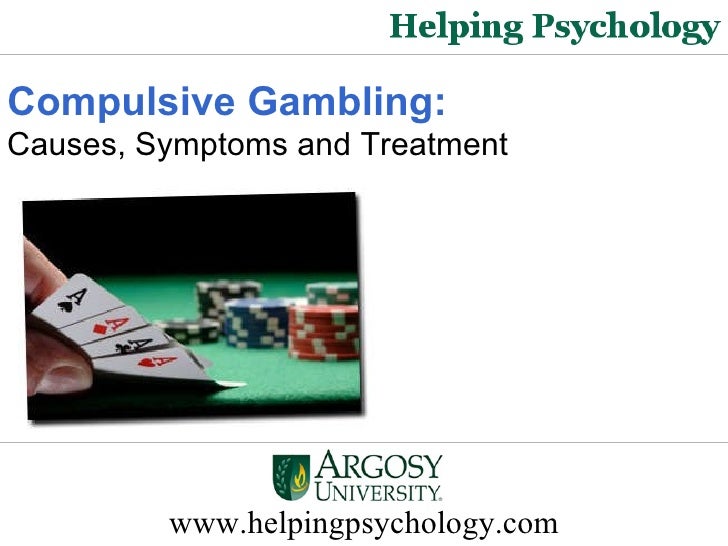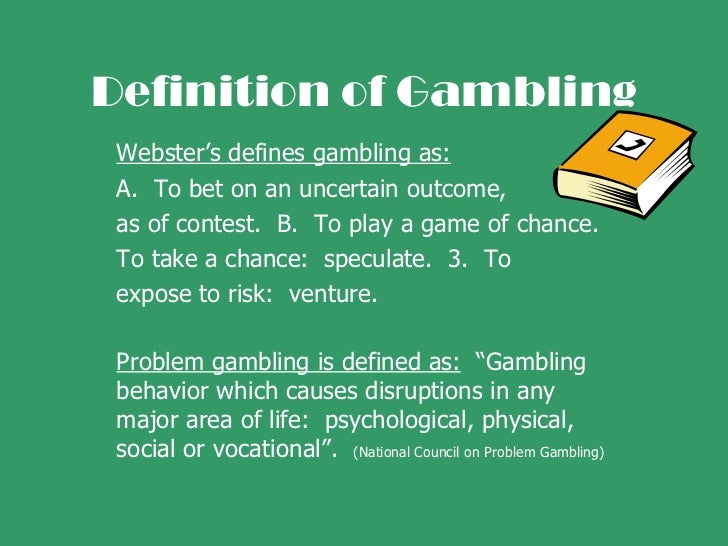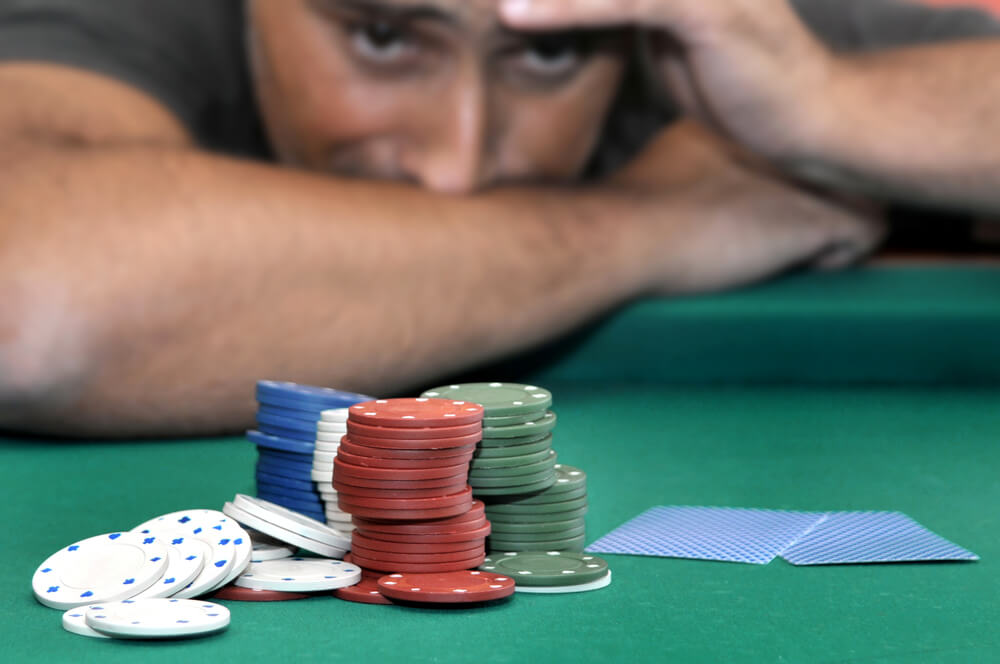Compulsive Gambling Meaning
compulsive gambling
It’s just as true with compulsive gambling as addiction to alcohol, illicit drugs, prescription drugs used nonmedically, or other addictive behavior including compulsive sex, overwork, eating disorders, and so on. In fact, gambling addiction, like all addictions, is considered a family disease/disorder. Compulsive gambling a compulsive eating disorder C2 If a movie, play, sports event, book, etc. Is compulsive, it is so interesting or exciting that you do not want to stop watching or reading it.
or
pathological gambling,
- Compulsive gambling is characterized by having the desire to gamble and not being able to resist said desires. The gambling leads to serious personal and social issues in the individual's life. This compulsive behavior usually begins in early adolescence for men and between the ages of 20-40 for women.
- “Compulsive gambling leads to an addiction, which is a psychological symptom that is well-understood and treatable with psychotherapy oriented toward that understanding. It is not a biological, genetic or moral issue, and it is not fundamentally different from other compulsive behaviors or addictions.”.
- Compulsive Gambling Definition. Compulsive gambling is an impulse control disorder that is characterized by an overwhelming urge to gamble. In compulsive gambling, your life becomes dominated by gambling. It is not clear what causes compulsive gambling. There is some evidence that there may be a genetic component.
 gambling
gamblingor gaming,
betting of money or valuables on, and often participation in, games of chance (some involving degrees of skill). In England and in the United States, gambling was not a common-law crime if conducted privately.
.....Click the link for more information.
 itself, and it has been estimated that up to 3% of the adult population may gamble pathologically.
itself, and it has been estimated that up to 3% of the adult population may gamble pathologically. 
Most gamblers are able to stay within reasonable limits in the amounts they gamble. Compulsive gamblers tend to lose control of the amounts they risk and cannot stop gambling even when they continue to lose. Although money is important to them, they often say they are looking for 'action,' an excited or euphoric state comparable to the 'high'of drug abuse. They often use gambling as a way of escaping from problems in daily life or from feelings of depression or anxiety. Eventually, compulsive gamblers may engage in forgery, theft, or other crimes to provide money for continued gambling or to alleviate a desperate financial situation resulting from gambling losses.

Compulsive gambling is a highly treatable disorder. For many, psychotherapy and active participation in Gamblers Anonymous, a support group with local chapters patterned on Alcoholics AnonymousAlcoholics Anonymous
(AA), worldwide organization dedicated to the treatment of alcoholics; founded 1935 by two alcoholics, one a New York broker, the other an Ohio physician. They developed a 12-step program that has made coping with alcoholism possible for countless people.
.....Click the link for more information., have proven effective.
Bibliography
See F. Barthelme and S. Barthelme, Double Down: Reflections on Gambling and Loss (1999).